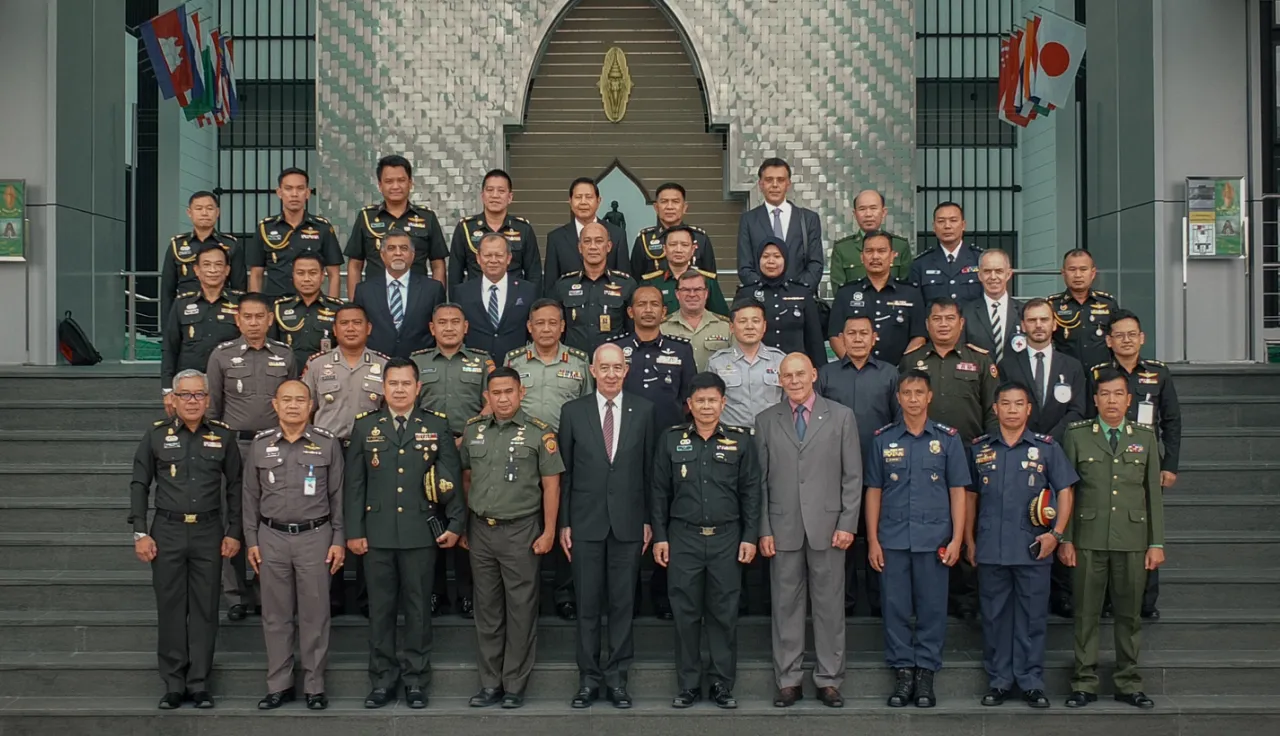Thailand: The right balance between security necessities and humanitarian concerns

The International Committee of the Red Cross (ICRC) and the Royal Thai Army jointly hosted the first Regional Workshop on Rules Applicable to Military Security Operations for Asia-Pacific region recently. Organized between 6 and 9 November 2017, the workshop was held at the Royal Thai Army’s new facility of Command and General Staff College, the oldest military college in Asia.
A group of 27 senior officers from the army and police force of 11 countries in Southeast Asia and the Pacific region participated in the event. The participants were namely from Australia, Cambodia, Indonesia, Lao People’s Democratic Republic, Malaysia, Myanmar, South Korea, Thailand, the Philippines and Viet Nam.
The workshop aimed to increase the participants’ awareness of international standards and best practices pertaining to military security operations and law enforcement. This would not only boost their capacity to handle current situations, but also support the States in their efforts to prepare military forces for law enforcement duties, required when situations exceed regular police capacities.
It was recognized that, as Member States of the United Nations, they have an obligation to “ensure that all law enforcement officials are selected by proper screening procedures, have appropriate moral, psychological and physical qualities for the effective exercise of their functions and receive continuous and thorough professional training,” as prescribed by the UN Basic Principles of the Use of Force and Firearms by Law Enforcement Officials (1990).
The four-day workshop consisted of individual theoretical sessions and experience sharing, exercises, group work, case studies and discussions on crowd management, decision-making processes, table top arrest-operation exercises and search operations.
Talking about the key learnings from the workshop, one of the participants said: “Nowadays, armed violence and conflicts can happen anytime and anywhere, and the military can be asked to operate in the midst of communities and civilian populations. It’s therefore crucial for military officers to be prepared for robust law enforcement duties and understand the humanitarian aspects of such situations.”
